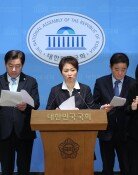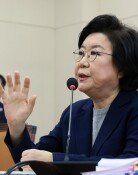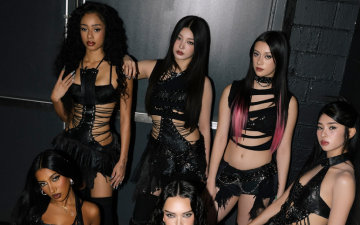People Power Party in crisis
People Power Party in crisis
Posted December. 21, 2024 07:37,
Updated December. 21, 2024 07:37
The People Power Party is rapidly descending into a state of dysfunction, failing to operate effectively as the ruling party. Following the impeachment of President Yoon Suk Yeol over the December 3 martial law crisis, party leader Han Dong-hoon resigned under pressure. Yet, the party remains deadlocked for a fourth consecutive day over the appointment of an interim leader, with debates continuing over whether Floor Leader Kweon Seong-dong should assume dual roles or whether another senior member should take the position. So far, the party has only resolved to finalize the decision by early next week. Amid the national upheaval of martial law and impeachment, the party exudes neither a sense of responsibility nor urgency. This confusion and ineptitude have caused the party’s approval rating to stagnate at 24%, unchanged from last week and half the Democratic Party’s 48%, according to a Gallup Korea poll released on Friday. This marks the largest gap in support since the Yoon administration began
The ruling party’s paralysis stems from its failure to unequivocally denounce the unconstitutional and illegal martial law declaration by the president. It has neither acknowledged what was wrong with deploying armed soldiers to the National Assembly nor issued a formal apology. Following the first impeachment vote, the party issued only a tepid statement expressing a vague “sense of heavy responsibility.”
This has solidified its image as the “martial law sympathizer party.” Meanwhile, its lawmakers appear more focused on their loyalty to the president and placating their most fervent regional supporters than addressing the growing public outrage. With over three years remaining until the next general election, they seem to dismiss the current backlash. Polls consistently show more than 70% support for impeachment and similar levels of public agreement that the martial law declaration constitutes treason. Despite this, the party’s internal discussions prioritize concerns about maintaining a timeline unfavorable to the opposition party rather than fulfilling their constitutional duty to defend democracy.
This inertia is evident in the lack of participation in meetings to discuss the authority and direction of the next interim leader. Among the party’s 30 second-term lawmakers, fewer than 10 attended each of the meetings held over the past two days. Floor Leader Kweon took five days to decide whether the ruling party would participate in a bipartisan consultative body proposed by the National Assembly speaker. Each delay underscores the party’s inability to act decisively.
The interim leader, expected to be chosen early next week, will likely be one of the senior figures Kwon Young-se, Kim Gi-hyeon, or Na Kyung-won. Regardless of who is selected, the anticipated two-top leadership structure, led by impeachment-opposing figures like Kweon Seong-dong, seems unlikely to dispel accusations of the party being a “martial law sympathizer” or a “shield against impeachment.” As the nation grapples with complex domestic and international crises, the public is once again left shaking their heads in dismay at the ruling party’s shortcomings.






![하버드 의사가 실천하는 ‘뇌 노화 늦추는 6가지 습관’ [노화설계]](https://dimg.donga.com/c/138/175/90/1/wps/NEWS/IMAGE/2026/01/22/133210626.3.jpg)
